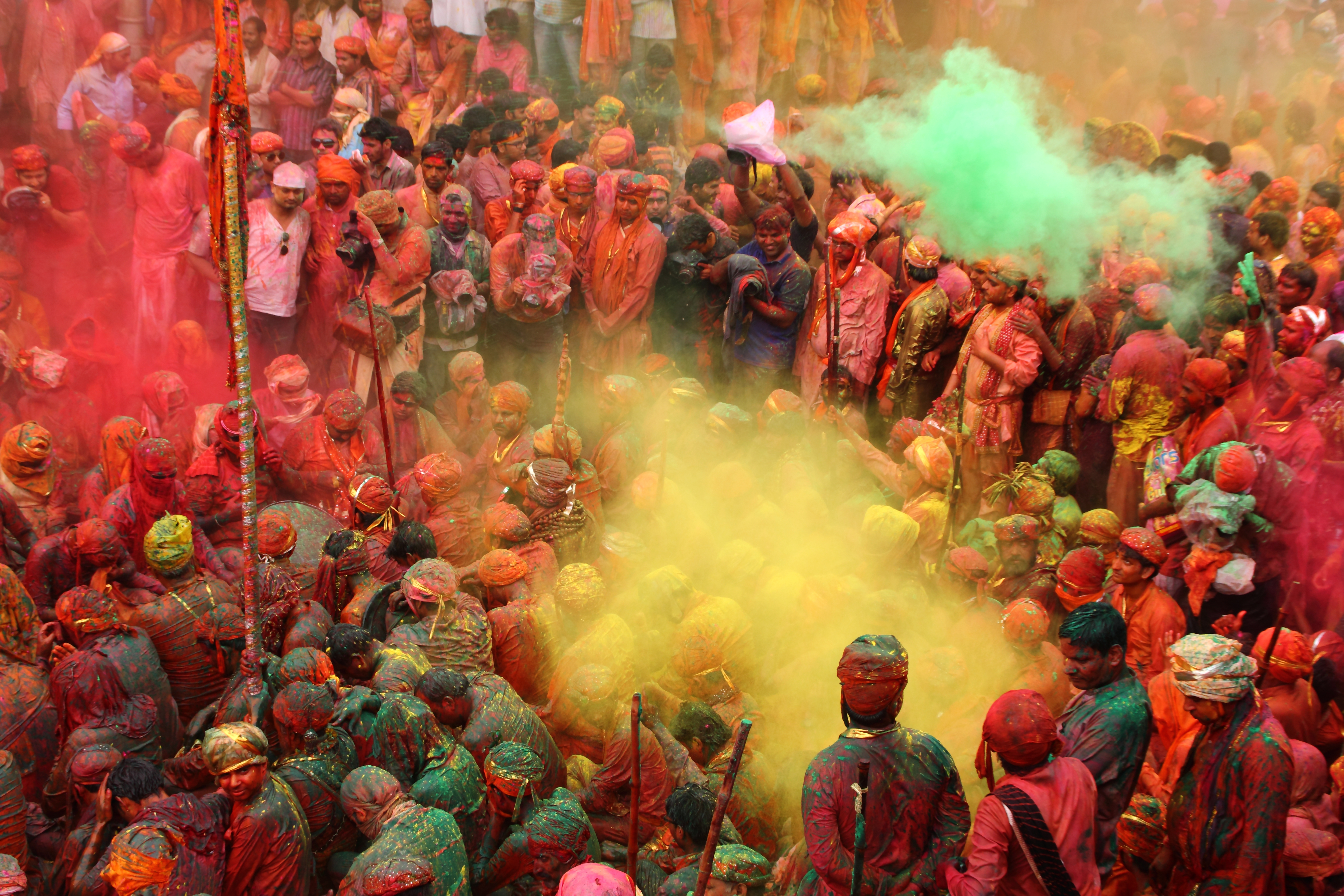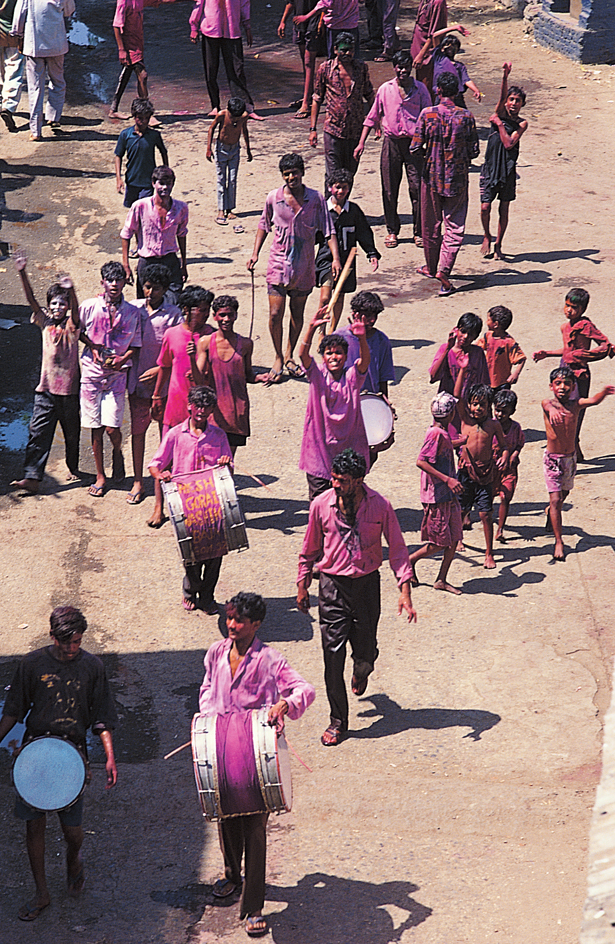
Holi, << HOH lee, >> is a Hindu festival celebrated throughout India. It is especially important in northern India. Holi falls on the day of the full moon of the Hindu month of Phalgun (February to March). It is associated with the god Vishnu, the arrival of spring, and the grain harvest.

Holi gets its name from a story in the Puranas, a collection of stories about Hindu gods and goddesses and heroes. According to this story, young Prince Prahlad was a devoted worshiper of Vishnu. His father, King Hiranyakashipu, disapproved of his son’s devotion. The king asked his sister, the demon goddess Holika, to lure Prahlad into a fire. But Vishnu protected Prahlad from the flames, and they consumed Holika instead. On the eve of Holi, Hindus gather to sing and dance around giant bonfires that represent Vishnu’s power.
Fun and good humor fill the week preceding Holi and the festival day itself. People relax the normal rules of social behavior and act boisterously. “Playing Holi” is a popular form of celebration in which people douse one another with colored powder and water. The liveliness of Holi commemorates the playful character of the god Krishna as a boy. According to Hindu tradition, Krishna was the eighth avatar (physical form) of Vishnu.
